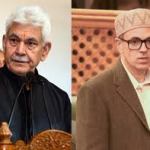India, often hailed as the world’s largest democracy, embodies a remarkable experiment in governance, balancing freedom, diversity, and the aspirations of over a billion people. Yet, beneath this celebrated narrative lie challenges that test its democratic fabric. From strained institutions to rising polarization, these issues demand attention—not to undermine India’s achievements, but to strengthen its democratic promise. Here’s a closer look at these concerns, supported by recent insights, and potential pathways forward.
Institutions Under Pressure
A democracy thrives on independent institutions: a judiciary free from influence, an impartial Election Commission, and a vibrant media. However, concerns have emerged about their autonomy. Reports, such as the V-Dem Institute’s 2023 Democracy Report, note a decline in India’s liberal democracy index, citing instances where institutional decisions appear aligned with political interests. Media freedom has also faced scrutiny, with India ranking 161 out of 180 in the 2023 World Press Freedom Index by Reporters Without Borders, reflecting pressures on journalists.
To address this, reinforcing legal safeguards against political interference, ensuring merit-based appointments, and empowering citizen oversight could bolster institutional integrity.
Polarization and Social Harmony
India’s rich diversity—spanning religions, castes, and languages—has long been its strength. Yet, political strategies increasingly exploit these differences, amplifying divisions. The 2022 Pew Research Center survey highlighted growing social tensions, with communal narratives often overshadowing policy debates. This polarization risks fragmenting the electorate, making governance a game of emotions rather than ideas.
Countering this requires enforcing stricter laws against hate speech, as recommended by the Law Commission’s 2017 report, alongside fostering interfaith dialogues and embedding civic education in curricula to build a more discerning populace.
Free Speech in the Spotlight
Dissent is the lifeblood of democracy, but expressing it in India can invite challenges. The National Crime Records Bureau reported over 400 sedition cases between 2014 and 2021, often targeting critics of the state. Such measures, alongside digital surveillance concerns raised by the 2021 Pegasus controversy, have sparked debates about free expression.
Reforming colonial-era laws like sedition, strengthening judicial protections for speech, and supporting independent media could ensure voices remain heard without fear.
Elections and the Role of Money
India’s elections are a global marvel, yet their integrity faces scrutiny. The Association for Democratic Reforms (ADR) found that 95% of political funding in 2022-23 came from undisclosed sources, often corporate donors, raising questions about influence. The cost of contesting elections has soared, with ADR estimating an average spend of ₹50-100 crore per parliamentary seat in 2019, sidelining smaller players.
Capping campaign finances, mandating funding transparency, and enhancing voter education could level the playing field, ensuring elections reflect public will, not wealth.
The Misinformation Challenge
In the digital age, misinformation spreads swiftly. The 2021 Reuters Institute Digital News Report noted India’s high exposure to fake news, amplified by platforms like WhatsApp, which boasts over 400 million users in the country. From election rumors to communal hoaxes, this distorts public discourse.
Promoting digital literacy, as piloted in Kerala’s school programs, alongside stricter platform accountability and robust fact-checking networks, could curb this tide.
A Democracy Worth Preserving
India’s democracy remains a dynamic force, evidenced by its regular elections and active civil society. Yet, the World Bank’s 2023 governance indicators suggest room for improvement in voice and accountability metrics. These challenges—be it institutional strain or misinformation—are not unique to India but require tailored responses.
The way forward lies in collective action: citizens demanding transparency, policymakers enacting reforms, and communities bridging divides. India’s democratic journey is not at a breaking point but a turning point. By addressing these issues diplomatically and decisively, it can ensure that democracy remains not just a label, but a lived reality for all its people. The choice is ours—engagement today for a stronger tomorrow.



